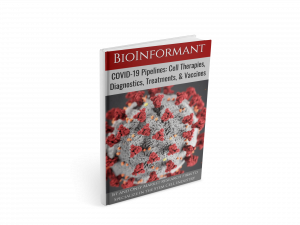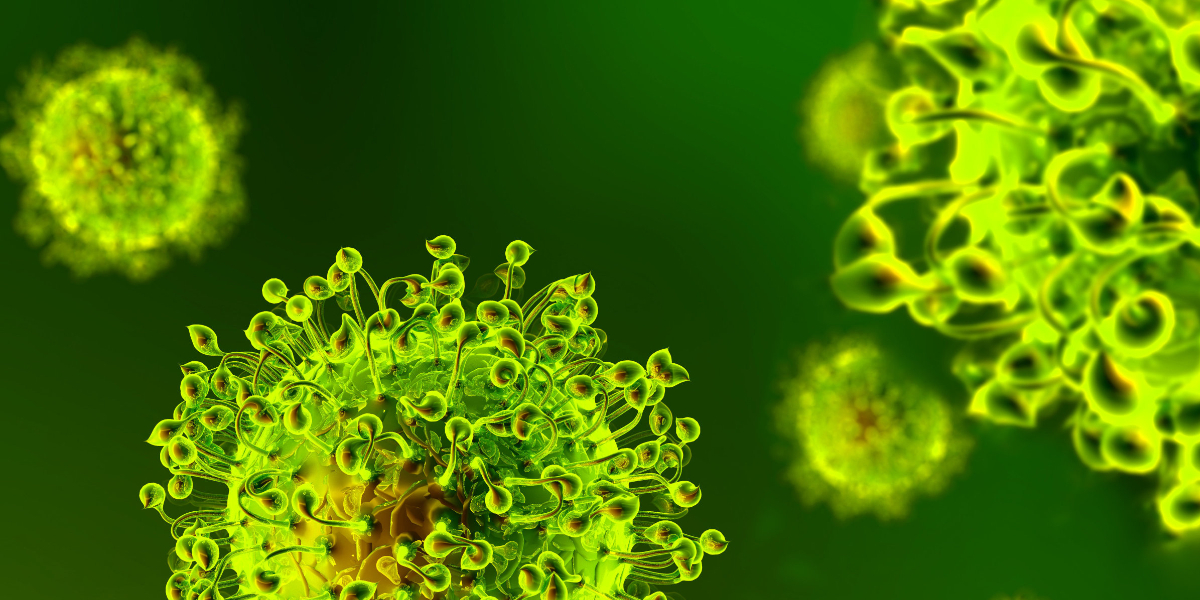While there is not yet an approved treatment for COVID-19, scientific, medical and regulatory agencies are making heroic efforts to bring out new medicines. Numerous COVID-19 product categories have emerged, including vaccines, antibodies, antivirals, repurposed drugs, RNA-based drugs, and cell-based therapies, as well as other approaches, such as enzymes, peptides and glycoproteins.
Thousands of scientific articles have been published electronically or in print since the outbreak of COVID-19 began in late 2019. Patent activity around COVID-19 is surging, with many companies securing intellectual property (IP) related to the development of COVID-19 therapeutics. To a lesser degree, companies are securing IP around vaccines, diagnostic agents, and methods.
Furthermore, new diagnostic tests for COVID-19 are emerging as an essential tool to track the spread of the disease, as the World Health Organization (WHO) is urging health agencies worldwide to make testing for the virus a top priority. As of May 20, 2020, the FDA granted Emergency Use Authorization (EUA) for 58 viral RNA-based tests, ten antibody-based tests, one antigen-based test and one home collection kit.
To accelerate the development of therapies against COVID-19, the repurposing of existing drugs is being explored by numerous market competitors. For example, Barcitinib is being explored because of its anti-inflammatory effect and possible ability to reduce viral entry. A specific dose of the anti-HIV combination, Lopinavir-Nitonavir, is now in clinical trials with Arbidol or Ribavirin. Remdesivir, developed by Gilead Sciences, was earlier tested in patients with Ebola virus and has shown promise in animal models for MERS and SARS. Remdesivir has reached Phase III in the U.S. and China.
Favipiravir, a purine nucleoside leading to inaccurate viral RNA synthesis, was previously developed by Toyama Chemical of Japan, and has now been approved for a clinical trial as a drug for the treatment of COVID-19. Chloroquine has shown itself to be effective in treating COVID-19 in China. Dozens of companies are rushing vaccine development and proceeding toward clinical trials. As select examples, the U.S. NIH initiated a Phase I trial in Seattle evaluating an investigational vaccine (mRNA-1273) created by NIAID scientists and their collaborators at Moderna, Inc. Sanofi and Regeneron launched a Phase II/II trial in New York evaluating the IL-6 targeted Kevzara. Inovio Pharmaceuticals is advancing its vaccine into human trials within the U.S. and intends to produce one million doses of it by the end of the year.
Globally, the healthcare industry is using every weapon in its armory to suppress the threat from the virus, including the use of living therapies such as natural killer (NK) cells, T-cells, stem cells and exosomes. While many novel approaches are being investigated, stem cells – mesenchymal stem cells (MSCs) in particular – are showing intriguing potential for the treatment of COVID-19.
MSCs are receiving attention because past studies have found the secretions from MSCs to be effective at treating inflammation and cytokine storms. From early-stage studies, it appears that MSC may exert beneficial effects, potentially by improving the lung microenvironment, inhibiting immune system over-activation, promoting tissue repair, protecting lung alveoli epithelial cells, preventing pulmonary fibrosis, or improving lung function.
Already, Athersys, Inc. has reported positive outcomes in other studies using MSCs for treating respiratory disease, and Mesoblast’s Remestemcel-L has proved to be effective in treating advanced respiratory distress. Athersys and Mesoblast are enrolling for 300 and 400 patient trials, respectively — two of the largest stem cell trials to date against COVID-19. In total, at least 26 companies are exploring cell therapy products against COVID-19 and its complications.
In the recent months, there has been a flurry of activity within the clinical trial sector. When all trial types are considered, there are over 400 studies exploring approaches to diagnosing, treating or preventing COVID-19. ClinicalTrials.gov has also reported at least 15 trials leveraging stem cells against COVID-19.
COVID-19 Market Trends
To cover the rapidly evolving pandemic, BioInformant released a comprehensive report that provides coverage of the rapidly evolving pandemic, with an emphasis on the emerging role of cell therapies in the prevention and management of the COVID–19.
Released June 2020, this 269-page report presents existing research on COVID-19, reveals key insights and positions the reader to identify emerging market opportunities related to the Coronavirus pandemic. It highlights global competitors involved in the fight against COVID-19 and presents product development pipelines, diagnostic testing approaches, vaccine development programs, regulatory approvals, and importantly, trend rate data for COVID-19 scientific publications, patents, and clinical trials on a worldwide basis.
With the rapidly developing nature of this global pandemic, you don’t have the time to do the research. Claim this global strategic report to become immediately informed, without sacrificing hours of unnecessary research or lacking awareness of critical COVID-19 events.
About BioInformant
With an online readership of nearly one million viewers per year, BioInformant is a American market research firm with nearly 15 years of industry experience. As the first and only market research firm to specialize in the stem cell industry, BioInformant research has been cited by the Wall Street Journal, Xconomy, and Vogue Magazine. Headquartered in Washington, DC, BioInformant is strategically positioned to be near the National Institutes of Health (NIH), the U.S. FDA, the Maryland Biotech Corridor, and policy makers on Capital Hill. 




















Tell Us What You Think!